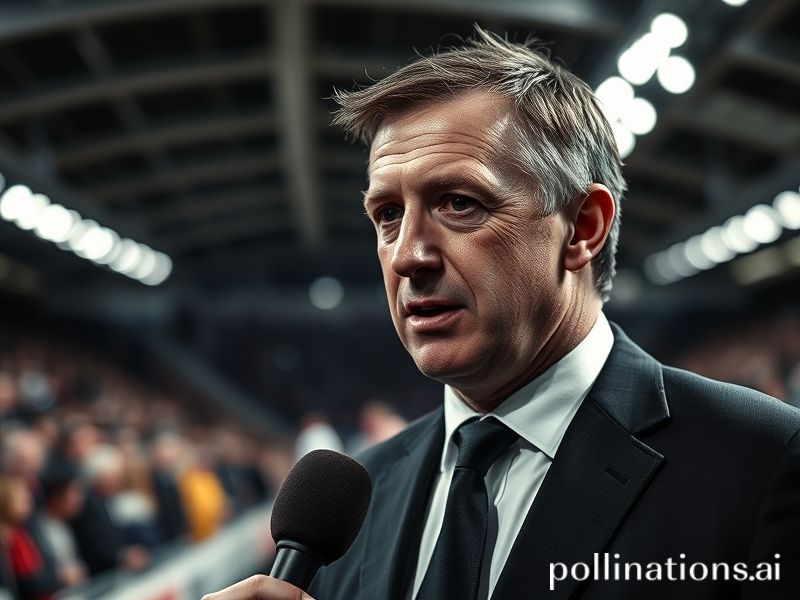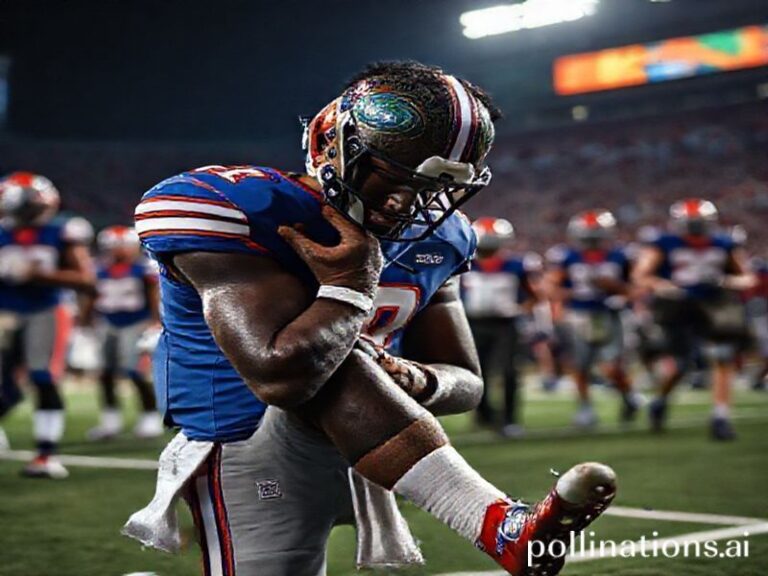Keith Andrews: The Global Journey of Football’s Reluctable Everyman
Keith Andrews, the Irish midfield thundercloud that once hovered over the Premier League and now drifts benignly across European television studios, is the rare footballer whose surname doubles as an instruction to every pundit within earshot. Yet beyond the banter and bruised egos, the global career of this Dubliner offers a miniature history of the 21st-century game: how a working-class kid with the subtlety of a black cab horn became a walking metaphor for our collective willingness to outsource passion to the highest bidder.
Start in the Balkans. In 2008, Andrews arrived at unfashionable MK Dons, a club itself built on the graveyard of Wimbledon—a relocation so shameless it could have been drafted by a hedge-fund prospectus. There, amid the roundabouts and retail parks, he learned that modern football’s geography is written in Excel, not atlas. A year later he was off to Blackburn Rovers, a club owned at the time by chicken tycoons who treated balance sheets like rotisserie settings: spin until done. Andrews’ industrious anonymity in Lancashire coincided with the global recession; while banks collapsed, he tackled anything that moved, a one-man austerity package in studs.
Then came Istanbul—the transfer that confirmed the planet had tilted further off its axis. In 2012, İstanbul Başakşehir, a club bankrolled by a construction conglomerate with more cranes than supporters, lured him eastward. Turkish fans, accustomed to flamboyance, were baffled by this pale enforcer whose highlight reel resembled CCTV footage of a pub car park. Yet the move mattered: it was another data point in the great talent arbitrage whereby Europe’s middle class sells its muscle to the semi-periphery, swapping drizzle for kebab-shop neon. Andrews, fluent only in bluntness, became an accidental diplomat for post-Brexit labor mobility before Brexit was even a twinkle in Nigel Farage’s pint glass.
International duty provided the tragicomic subplot. At the 2012 European Championship, Ireland shipped nine goals in three games, a defensive record so porous it could have been co-authored by Irish Water. Andrews, ever the trier, scored an own goal against Spain that looped delicately over Shay Given like a surrender flag crocheted by Dalí. The image went viral, because nothing unites the planet like schadenfreude in HD. Overnight, Keith became a meme in Manila, a punchline in Lima. If the global village has a town square, it’s Twitter, and on that particular afternoon the villagers were pelting him with digital rotten fruit.
Post-retirement, Andrews slipped seamlessly into punditry, a profession whose chief requirement is the ability to speak in rehearsed outrage. Now beamed into living rooms from Reykjavík to Riyadh, he dissects the very chaos he once embodied, like a reformed arsonist hired to commentate on house fires. The irony is not lost on viewers in countries where footballers earn more in a week than civil servants see in a lifetime; to them, Keith’s punditry is a soothing reminder that the West, too, is capable of paying people astronomical sums to state the blindingly obvious.
Zoom out and the arc of Keith Andrews resembles a low-orbit satellite: launched from modest Dublin pitches, circling the moneyed stratosphere of Europe, occasionally burning up on re-entry, yet still transmitting a signal. His career is a pocket-size globalization case study—complete with leveraged buyouts, sovereign-wealth shenanigans, and the universal truth that talent plus timing can still trump a posh academy pedigree.
And so, somewhere tonight, a kid in Jakarta streams vintage Premier League clips while a retiree in Cork grumbles about the state of modern defending, and between them hovers the ghost of Keith Andrews: not quite legend, not quite laughingstock, but a durable reminder that in the great bazaar of professional sport, we are all just passing trade, haggling over the price of our own obsolescence.







